#utena analysis
Text
I also think a lot of the Shiori Hate™ comes from her portrayal in Adolescence. Now, while I understand the conclusions that peoole come to based on this, I don't think it's entirely fair to Shiori's character as it doesn't really take into consideration the context of Adolescence and the role that Shiori plays in the narrative.
Adolescence of Utena (regardless of whether you interpret it as a direct sequel, a standalone reimagining, or something in-between) clearly serves as a synopsis of the events of the series, just with details cut-out, changed, or condensed to support the movie's length. For example, the Student Council arc is instead condensed into a single duel with Saionji, as is the Apocalypse arc with Juri.
I would argue that Movie!Shiori, rather than being 100% representative of the real Shiori, is instead meant to serve as a stand-in for the Black Rose Duelists as a collective. The Black Rose Arc in RGU is vital in showing how victims of the system are turned against one another in order to keep them distracted from their real oppressors (this idea is also embodied in the series by Nanami, who is missing from the movie). It also demonstrates several examples of how Ohtori Academy's patriarchal system has fostered unhealthy and toxic relationships between various characters. I believe that Shiori is meant to serve as the embodiment of these themes in Adolescence of Utena, in lieu of the Black Rose Arc.
In Adolescence, Shiori has a very unhealthy and toxic relationship with Juri. She wants to force Juri to be her prince forever, so that she, by extension, can gain power within the system. This is in much the same way that the Black Rose Duelists make their respective student council members into rose brides by forcefully pulling swords from their chests, all in order to gain power and agency within the system. Shiori also plays a major antagonistic role in the movie as she is the one who exposes Anthy as the one who "killed" Akio, and she later attempts to stop Anthy from escaping to the real world (its a big mistake to think you're the only one who can turn into a car). I would argue that this represents how the Black Rose Duelists are convinced by Mikage to kill the Rose Bride, believing that it will solve their problems- which in itself represents how victims of the system are turned against other victims in order to keep them from rising up against the real oppressors. I think that this shows how Shiori's motivations within the movie more closely align with the general motivations of the Black Rose Duelists as a whole, rather than her original motivations within the series (which are worthy of an analysis all on their own).
-
Tl;dr Movie!Shiori shouldn't be taken as a true 1:1 representation of Shiori's character, because she actually represents the entire Black Rose Arc and all its themes as a whole, just in condensed movie format.
#yet again. no.1 toxic utena girlies defender until the day i die#i have a lot of thoughts and feelings about shiori she means so much to me#maybe my 4th favourite rgu character#shiori takatsuki#rgu#revolutionary girl utena#sku#shoujo kakumei utena#adolescence of utena#utena analysis#rgu analysis#black rose arc
63 notes
·
View notes
Text
Yukio Mishima's House in Ohtori Academy
Lmao Utena fans in 2001 like 'the setting is an anachronistic western style of archi-'



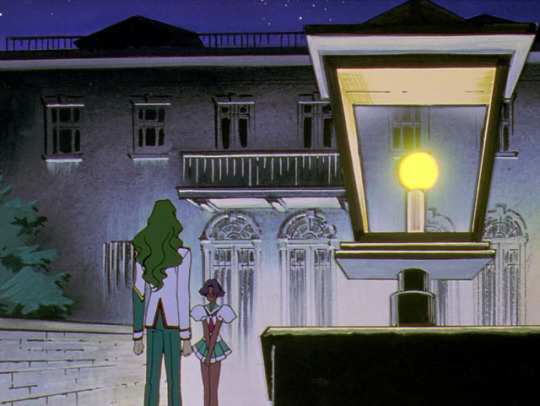

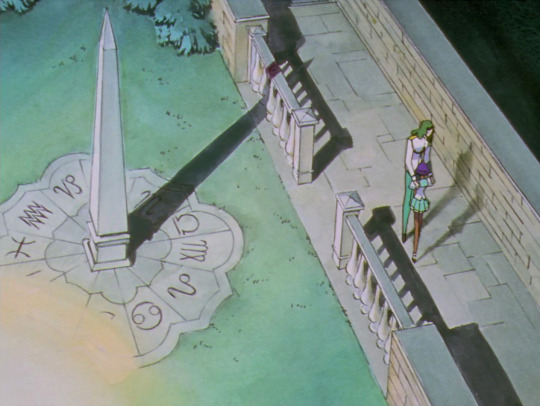

#Utena#Revolutionary Girl Utena#RGU#Sku#Utena meta#Utena analysis#Yukio Mishima#Lmao welcome to the wide world of problematic faves ig
2K notes
·
View notes
Text
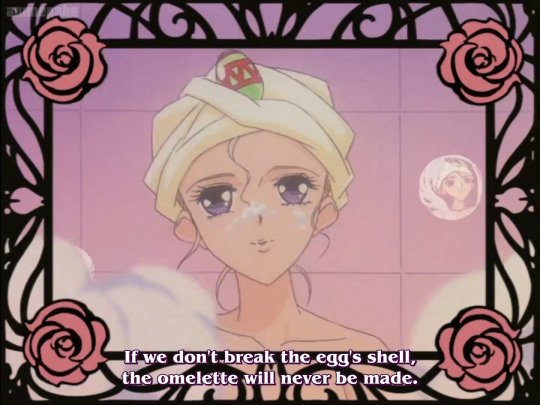
Saw this, thought of the egg speech and now I'm like something something "the difference between the egg being nurtured and provided for so it will grow and someday break out of its shell and take flight" vs "the egg being seen as something only meant for consumption, to be broken and eaten" something something "how children are treated as possessions in our society" something something– [EXPLODES]
#revolutionary girl utena#nanami kiryuu#touga kiryuu#shoujo kakumei utena#sku#rgu#utena analysis#Of course‚ there's also the whole birdcage symbolism to consider too but I better slow down now or else– [EXPLODES AGAIN]#ambi utena post
618 notes
·
View notes
Text
SA Mention //
The cantarella scene in Utena is so so so good and nearly every bit of it has been analyzed over the years (for good reason!). But can we take a moment to talk about how the music skips?
Right after Anthy suggests she poisoned Utena's cookies. The background music starts skipping. It's an obvious loop too, once you hear it, it's hard to unhear. The music doesn't pick back up until after Utena admits to poisoning the tea, AFTER the spinning red rose. It picks back up at "The tea is delicious".
At the most basic level, the skipping is just another method by which RGU creates emphasis.
But it just. It can't help but remind me of the most significant case of music skipping in the franchise. In Adolescence of Utena, right before E-Ko and F-Ko show the tape of Anthy's assault (another scene which has to do with something being put in Anthy's drink).
So then, the skipping could represent honesty. The brutal, uncomfortable bearing of the truth. Statements that ring in the ears and choices that maybe aren't the most delicate or harmless but had to convey the intended message somehow.
(If anyone else has watched seebeees' video essay on transfeminism in utena [which you should, it's really good], it reminds me of their point on the way Adolescence could be using static to represent Anthy's trauma. Records and CDs skip when something has dirtied them. Scratched them. Damaged them).
It could represent repetition obviously, but it could also represent the exact opposite. A breaking of the cycle, a momentary reprieve from the looping record that is Anthy and Utena's lives at Ohtori. When they confess their love for each other in that moment, in such an odd and uniquely utenanthy way, it catches the narrative off-guard. They are cracking the shell of their egg. Their love is forcing itself through the narrative.
#revolutionary girl utena#rgu#shoujo kakumei utena#sku#utena#utena tenjou#anthy#anthy himemiya#utenanthy#adolescence of utena#rgu meta#utena meta#revolutionary girl utena meta#rgu analysis#utena analysis#revolutionary girl utena analysis#SA mention
774 notes
·
View notes
Text
I decided to rewatch Episode 26 (Miki’s Nest Box (The Sunlit Garden - Arranged)) which was a bit of a horrible decision to watch at this hour but also made me realize something. This is the definition of dude trust me analysis.
There is one scene in the entire show that features both Kozue and Nanami. Within that scene, there are only a few angles that show both of them
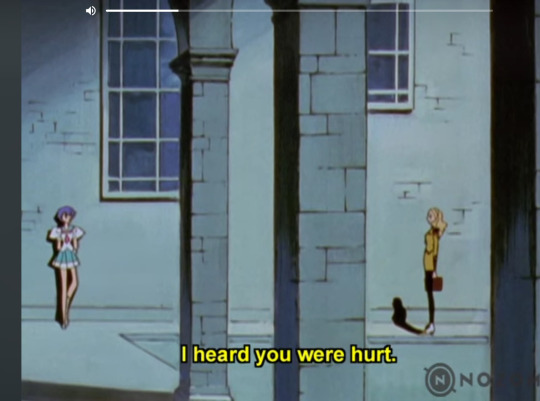
This wide shot places the camera at an angle and position in which Kozue and Nanami are both visible, but pillars are placed between them. While there is no physical blockade between them, the view visually separates them, creating an artificial barrier. While they are capable of coming together, the narrative as presented to us prevents it. Not to mention that their conversation after this point is focused on Akio, or “Daddy Long Legs” *retching noises* as Kozue refers to him.
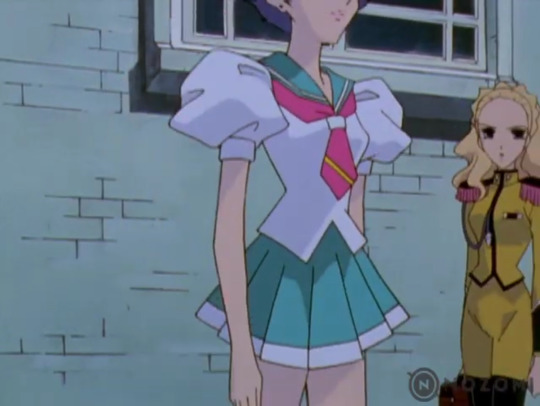
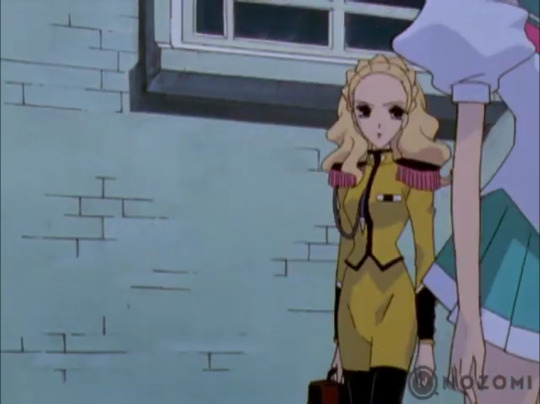
In the second, while Nanami is approaching Kozue, Kozue is walking away and out of frame to Akio. There is no barrier separating them - real, imagined, only perceived at a certain angle - but it’s too late. They are on different paths now thanks to Akio’s influence. After a shot of Kozue and Akio in silhouette walking into the night, the scene ends. Their moment is taken from them.
In conclusion Akio is clearly actively trying to separate Kozue and Nanami and I have never overanalyzed anything in my life
#unfortunately for all involved I currently feel deranged about them#kozunami#shoujo kakumei utena#sku#revolutionary girl utena#rgu#kozue kaoru#nanami kiryuu#utena analysis#more like overanalysis done out of sleep deprivation#ohtoriposting#I am tempted to apologize but I won’t
146 notes
·
View notes
Text
Wild to me that some people entertain the notion of Mikage and Tokiko being Utena’s parents when a) Mikage’s defective (homo)sexuality and inability to fuck is so central to his arc and character defined by ineffectiveness and b) TOKIKO LIVES.
No Tokiko can’t be a ghost because her entire point is to Live A Normal Life. If she had a daughter surely she would mention it as she recounts her mundane, domestic, as-scripted existence. Especially in combination to her remark about flowers must die to fruit.
Mikage’s whole problem is he cannot cross the barrier.

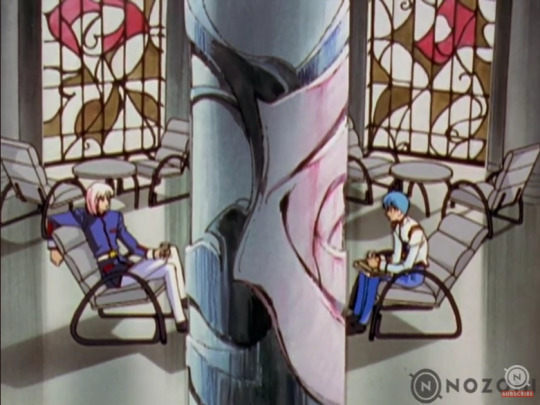
Even years later as a “better”, more effective man, he can’t. He’s disconnected. With himself, with others, with time and space.
He is inanimate, a robot, revolving in place. Nothing he does in the Black Rose arc has any lasting consequences, he leaves no mark on the world. He is not a dynamic character, but a plot device. He is a transformative catharsis for his duelists and a warning for Utena and little more. Being something so significant as Utena’s father is antithetical to how the narrative treats him.
#schroedingers chat#revolutionary girl utena#utena analysis#souji mikage#tokiko chida#the pillars are not strictly abt sex/romance but mikages alienation re: other ppl#tbh if anthy didnt pursue mikage idk if this man woulda fucked at all#does it rly count as fucking if mamiya isnt a person?#the mamiya mikage engages with does not exist he is a construct
504 notes
·
View notes
Text
Anthy’s Blessing of the Sword
A detail I appreciate upon this rewatch is that Utena never asks Anthy to ‘abandon her body to protect the blade’, basically the thing in the Touga rematch where Anthy kisses the sword and imbues it with some kind of power up.
We only see this done in this duel, this isn’t some power that Utena learns of then utilizes. The Sword of Dios is a seemingly regular blade, at most it might help Utena channel her connection with the Prince, but the Sword of Dios+ was able to cut through Juri’s blade. Even if Touga can’t access the power of Dios like Utena, he is able to access supernatural abilities through Anthy’s blessing.
So why doesn’t Utena use this power? Well, that would mean using Anthy as a “shield”; something many characters do throughout the series (most notably when Akio throws Anthy at Utena in the final duel). Utena is firm in her stance that she is Anthy’s protector, even though she doesn’t know what that means or that she sucks at it.
More importantly, asking Anthy to ‘bless’ the sowrd is asking Anthy to further demean/dehumanize herself. There’s a reason Utena looks away(the audience is never explicitly shown), it’s a vulgar act of subservience. There’s the obvious symbolism/implication that comes with a woman kissing a man’s sword, and forcing Anthy into that position (especially now that Utena knows that Anthy is compelled to do as she says) would be a betrayal of the nobility, that princely ideology, that Utena holds herself too.
While the story book prince would gladly accept tokens from maidens, Utena instead upgrades her powers by drawing on the sword Anthy draws from Utena’s own heart. When Anthy does aid this blade, she raises herself in a flourish instead of remaining down and demure. Utena, the noblest prince who never was, refuses the maiden’s blessing for the witch’s.
#rgu#revolutionary girl utena#utena#utenanthy#utena tenjou#anthy himemiya#touga kiryuu#utena analysis
649 notes
·
View notes
Text
I dont know how to phrase this thought i just had but this picture of ohtori school reminds me a lot of a church, and also that gothic churches were built that tall to represent how powerful and big god was, making people feel small there.
Also in some latim-derived languages like spanish Dios mean God, which makes sense when he falls from the castle in the sky and "bless" utena with strenght because of her 'faith' in him (as she sees him as a hero and is her biggest inspiration) and that makes me think of the religious (catholic i believe) symbolism of utena.
Dios is God, as he falls from heaven to bless the faithful. He comes from a castle on the sky that promises miracles such as the eternity of your happiness and innocence. Ohtori academy is the church, as everyone there is a small thing compared to the creator of everything: Akio. The students are children, Akio is an adult there conditioning them in following his schemes (like the boys are powerful princes and girls are helpless princesses and if they refuse that theyre witches), which would make him the God of his own illusions.
The students are just believers, Akio controls them in his own mysterious ways as the end of the world, but them when someone is defying him he has to take the matters in his own hands.
Akio could truly believe he is a God, shaping students as he wishes in his endless timeless illusion, but he isn't. Dios, the real Prince, God, doesn't exists. Akio just thinks they are the same, but in reality, Akio means Lucifer, and his Godly version of himself is only what the people who blindly loved him (anthy, utena) saw
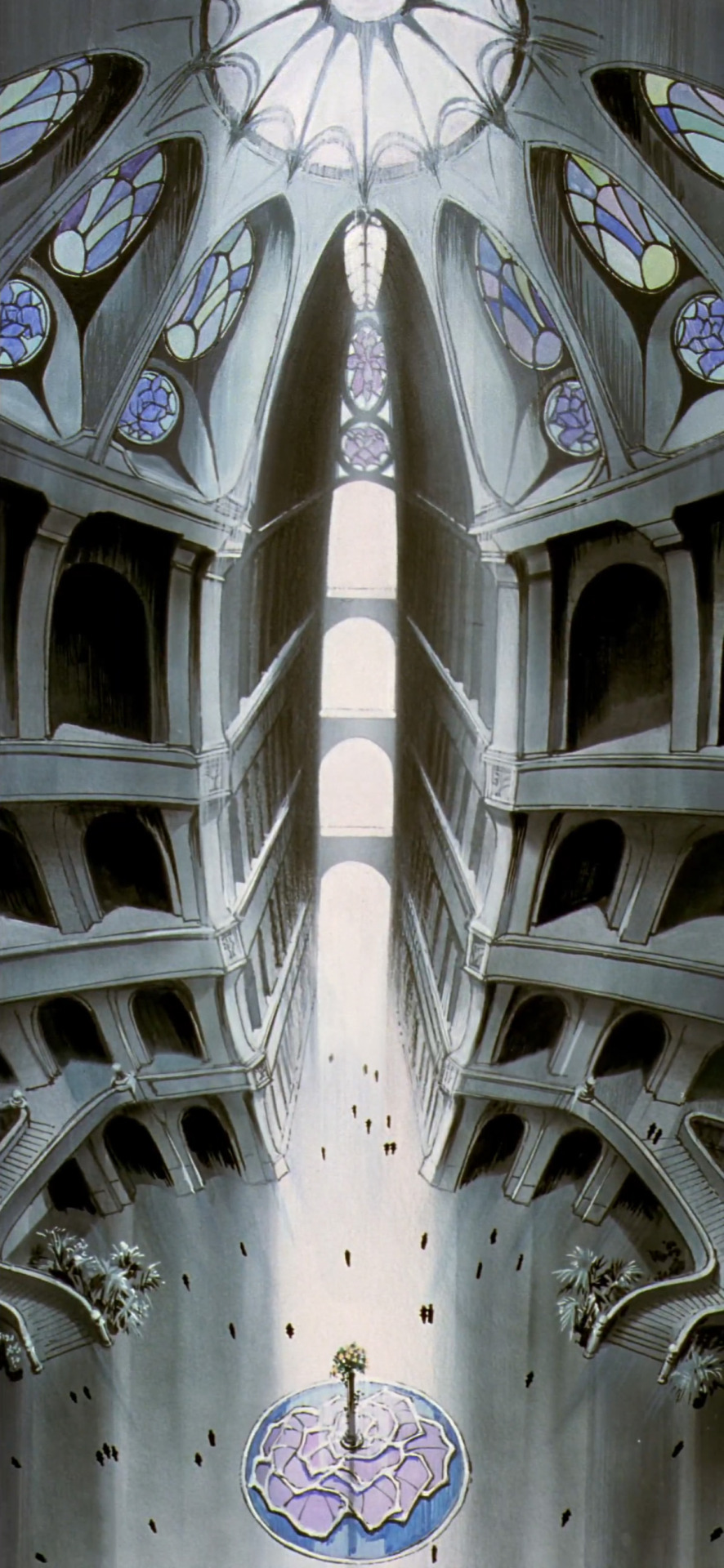

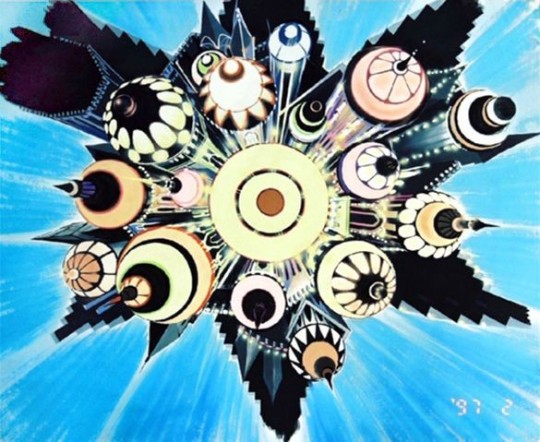
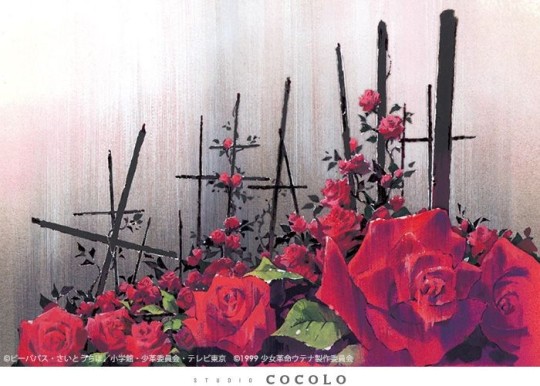
#revolutionary girl utena#shoujo kakumei utena#anthy himemiya#utena tenjou#akio ohtori#Prince dios#religious imagery#utena analysis#symbolism
103 notes
·
View notes
Text

People were talking about this scene on Twitter rgu and I feel I need to talk about this scene too. Because so much happens and if you knew the context, your stomac will get upset.
Akio demands Anthy to tell him, what she thinks of Utena,
Her fingers move around nervously before Akio forces her to get closer to him
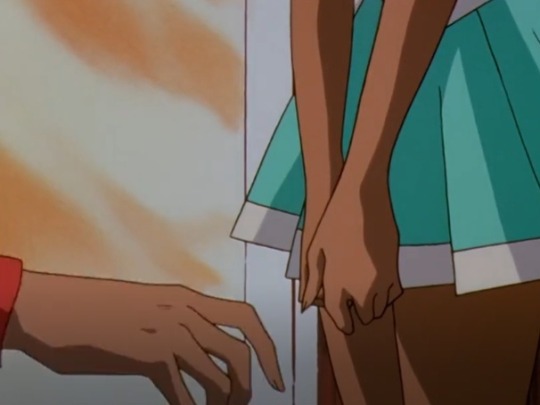
Anthy deflects, she's trying to change the topic
she doesn't want to share her feelings about Utena with Akio, she knows Utena is in danger, she knows Akio does not like Anthy to be happy with someone else. She has always been an empty shell because that's what Akio wants from her. Her caring and having feelings for Utena is something he wants to take away.
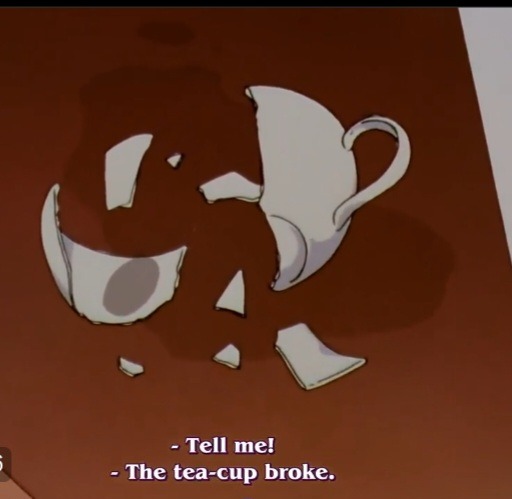
Then Utena walks into the scene, unaware of the abuse happening ,Akio says the following disturbing line.
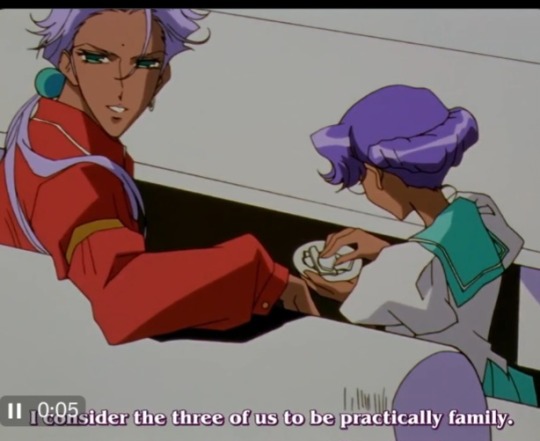

Akio is already working on grooming Utena. Anthy knows what Akio means with his line and what he plans to do.

And there is nothing she feels she can do about it. She lacks the current power to free herself from Akio and can't protect Utena either. But it's clear she hates this.
73 notes
·
View notes
Text
Just finished the Second Sex by Beauvoir and there's so many ideas from the book that are explored in RGU, especially when it talks about the rejection of femininity in childhood, lesbianism and how women have been historically kept from achieving transcendental things (in Utena's case, "something eternal") and so they search it vicariously through the men in their lives (Utena looking for his prince), ultimately losing their personhood and becoming an object or "the other", even in their own eyes (in the end all girls are like the rose bride)
The book is outdated in many ways but it's still a great read!
#am I reaching???#i should write a more in depth post about this#feminism#the second sex#rgu#utena tenjou#revolutionary girl utena#utena meta#utena analysis
33 notes
·
View notes
Text
you know the stereotype about utena fans
well
let's take a specific sequence and compare the four primary translations of Utena that I know of. why this one? because i know we changed it and also sequences with these two had a lot of minor telling differences from one effort to the next

Revolutionary Girl Utena, Episode 25, Our Eternal Apocalypse
1998, UTP fan project:
Touga: You're driving quite fast.
Akio: She's purring nicely, don't you think? Care to take the wheel?
Touga: What? But I still don't…
Akio: You're too strict…
Touga: That was a rather indecent proposal, Mr. Chairman.
2003, Central Park Media DVD:
T: We're really flying down the road...
A: The throb of the engine feels good, doesn't it?
A: Care to take the wheel?
T: Hm? But I'm not old enough..
A: Such a strict boy.
T: That wasn't a fair proposal, Mr. Chairman.
2011, Nozomi Blu-ray, edited from the CPM translation via a fan led project that was us and you and it was awesome:
T: We're really flying down the road...
A: The throb of the engine feels good, doesn't it?
A: Care to take the wheel?
T: Hm? But I'm not old enough..
A: How upright of you.
T: That was an indecent proposal, Mr. Chairman.
2023, Some-Stuffs fan translation project:
T: You're flying down the road.
A: Exquisite vibrations, no?
A: Care to take the wheel?
T: Huh? But I'm still not...
A: Well, aren't you stiff?
T: That was rather inappropriate, Board Chairman.
Do you like what you see? Is this level of ridiculous exactness interesting to you? Do you think these decades-spanning comparisons add anything to the discussion?
Well join our forum, Something Eternal, then. Because in the time it took for me to type this up for the Tumblr post, forum member xenofem dropped this in the thread about comparisons of the text with other examples already there broken down by color look just go
Looking at that exchange in episode 25 line by line:
Touga: 随分飛ばすんですね。
The subject of this sentence is elided, which is what's leading to the discrepancies around we vs. you. The verb, "tobasu", is literally "to make something fly" or "to send something flying", but can also refer to driving a vehicle fast, or moving fast through things. The object is also elided, the literal meaning is clearly the car but there could also be room for innuendo here.
ok no but seriously, so much amazing stuff has already happened on this babby ass forum that I can barely keep up, we have birding threads and Baldur's Gate 3 threads and new fans posting their reactions as they watch for the first time threads and terfs are banned on sight
#utena#revolutionary girl utena#empty movement#utena forum#utena translation#utena analysis#utena meta#apparently the 'well aren't you stiff' one is the most accurate#which figures because it's also the worst#in utena#the most uncomfortable scenes are often also the most brilliantly written
236 notes
·
View notes
Text
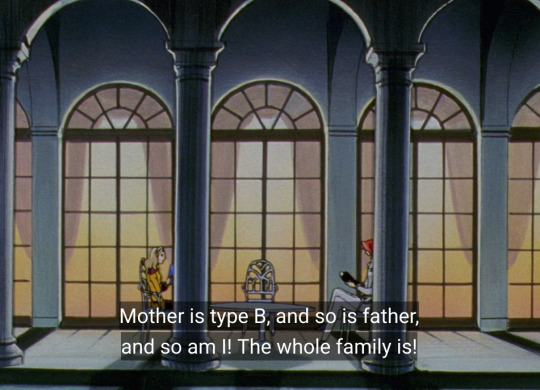

Word of God/movie backstory aside, it suddenly came to me that there is one other gap of knowledge that has probably contributed to a significant part of the alienation between Touga and Nanami, and it's something that existed throughout all of Nanami's life, so it's given that she wouldn't truly notice it: Touga knows they're adopted, Nanami does not. I think that makes a big difference.

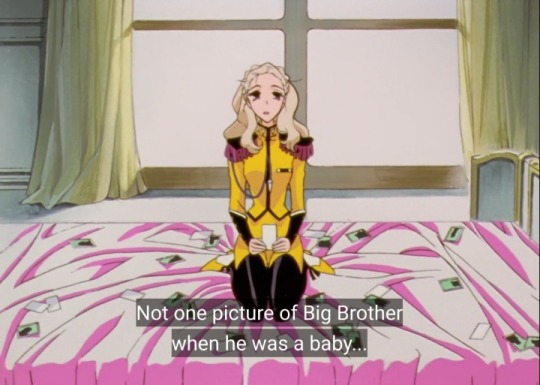
Touga's backstory is bound not to be the exact same as the movie (After all, Nanami isn't even there with him), so I'll let myself speculate a bit. Their biological parents could have died, they could have abandoned them or sold them, or the siblings could have been removed from their care, and unless Nanami was brought in later to wherever Touga was, it's safe to assume that he spent at least 5 years with his original parents. He has memories of a different family, and of losing that family. Nanami doesn't even know about any of it. She doesn't realize there is a side of her brother that she never got to meet.


"Blood" is very important to Nanami. Blood is what Nanami uses to try and reassure herself that the parents who are cold and distant to her, and the brother who's grown cold and distant too, have an eternal unbreakable bond. It's very brittle though. Nanami constantly fears being replaced, discarded or harmed by her family. Most often by Touga, who ironically, happens to be her only blood relative there.
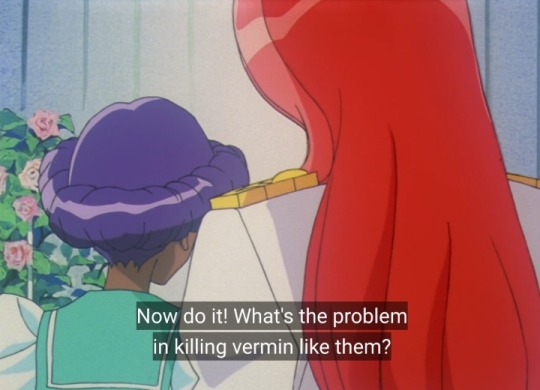
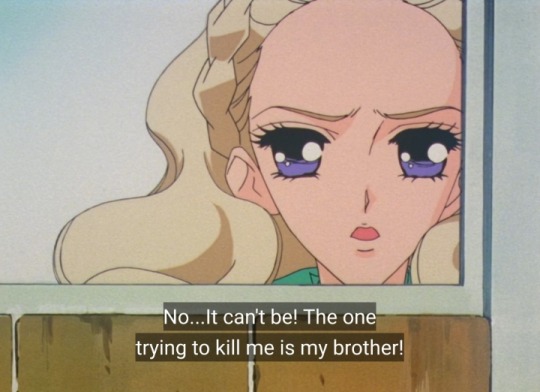
Her anxiety can be very easily explained by her experiences with how she was treated growing up in the Kiryuu household, but I do wonder if there's some subconscious parts of her that tap into these knowledge gaps too. I already felt like it was there, in the way her love for her brother is as protective as it is possessive, and how to protect him from harm, be it real or perceived, she can go feral, often shooting wildly at whoever she thinks is to blame, always hitting the wrong targets; and so maybe, I thought, it is possible that her anxieties are also tied to these repressed early childhood memories. Ones of once having a family, and then losing that world, being thrown someplace unfamiliar. Vague mostly forgotten memories fueling her fear of abandonment, working like a constant little nagging at the back of her head signaling to her how little blood ties really matter in the end.
"Blood" doesn't matter to Touga in the same way. He doesn't hold into a rose colored view of it. He knows by experience how easily those ties can be severed, how fickle they are. That's why when he found a little girl in a coffin, a little girl who spoke of there not being anything eternal, of how those you care about are bound to leave you, and questioning what's even the point of living then, he couldn't give her anything. He couldn't save her. He didn't know the answer for himself either.
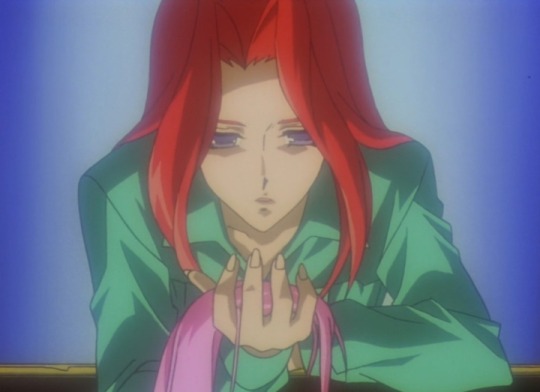
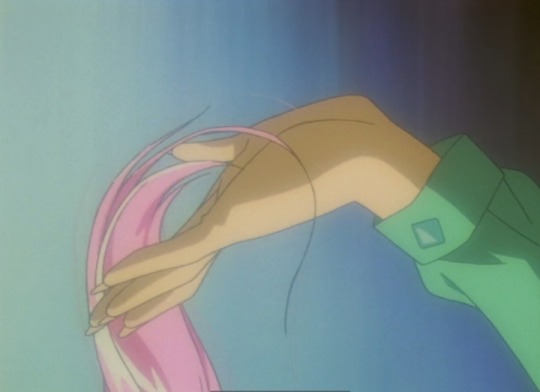
#revolutionary girl utena#shoujo kakumei utena#sku#rgu#utena meta#touga kiryuu#nanami kiryuu#utena tenjou#if someone could help me with the id for these pictures I'd really appreciate it 🙇#ambi utena post#utena analysis
160 notes
·
View notes
Text
Hair Symbolism in Utena
Not a very meaty post, but I haven’t found too many people talking about it in an explicit manner, much less point it out at all beyond the Utena/Anthy hair swap + student council design changes in Adolescence, which. Is a shame! Frankly it’s my favorite bit of symbolism from the entire show, along with the cars. Rest of the content under the cut
Long, straight, rigid forms represent masculinity in Ohtori, as curved, rounded, elegant forms represent femininity; this is reflected in the architecture of Ohtori Academy and other various symbols featured throughout the show (namely the swords and the birdcage, but there was also Touga’s masturbatory carrot that one time lol). This also applies to hair.
So far, I have down that:
Long/loose hair = arrogant, short-sighted, self-serving
Short/”done” hair = repression, ignorance, self-imposed suffering
Straight hair = Masculinity
Curly/wavy hair = Femininity
With this in mind, it’s interesting to note that Utena and Akio are the only characters whose designs incorporate aspects of both masculinity and femininity. Utena’s hair curls inwards at its tip, but is otherwise pretty straight. Akio’s hairstyle depends partially on the form he takes, but for the most part, it’s evident that the forefront of his hair is curly while the back hair is straight.


Furthermore, Anthy and Saionji’s hair looks... exactly the same. Which has some fascinating implications about Utena’s deconstruction of gender roles! (too lazy to find a bigger picture for Saionji lol. But it gets the point across). Of course, with themes of repression in the narrative, it’s also interesting to consider what Saionji having his hair tied up in a ponytail during certain scenes could signify. Though, we CAN surmise that, in Anthy’s case, it’s about her hiding the truth about her identity and masking her motives under the guise of a meek, subservient schoolgirl. But again, knowing Utena, I wouldn’t be surprised if it turned out there was something deeper than that going on in the writing.
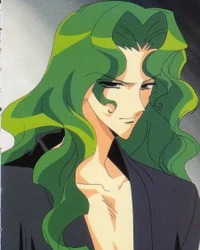
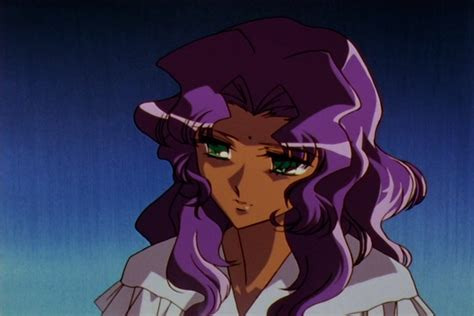
There’s more, of course: Juri sports really, really, really tight curls when she’s just going about her daily life, projecting a cool and unperturbed facade, but when she has her hair down, you get some of the most emotionally charged scenes in the entirety of RGU. Tsuwabuki’s hair resembling Touga’s when he was young. Nanami’s hair hardly ever shown coming undone.
Anyway that’s the post byyeee
#revolutionary girl utena#utena#shoujo kakumei utena#sku#rgu meta#sku meta#rgu analysis#sku analysis#utena analysis#utena symbolism#exilley's diary#Codeword: Revolution#<-- for personal tagging purposes#im metaposting on main now#i guess.
214 notes
·
View notes
Text
The way Kozue and Nanami are never shown looking at each other in the same frame without a visual barrier between them vs how important it is when Utena and Anthy make eye contact…screaming crying sobbing on the floor by all rights and parallels they should have a connection but they never get the chance to make one
#kozunami#ohtoriposting#revolutionary girl utena#rgu#shoujo kakumei utena#sku#kozue kaoru#nanami kiryuu#utena analysis
65 notes
·
View notes
Text
Curiosity got the better of me and I watched James Somerton's Revolutionary Girl Utena analysis video. I ended up transcribing some of it to better follow some of what's said, so putting some of those snippets here. Placing these specifically because it paints a real bleak picture of how this man views abuse survivors. (For a more thorough debunking/clarifying commentary on the vid, this post's pretty good!)
14:16
Looking at real-world parallels, a given individual can endure much less debilitating physical and psychological trauma and be ruled as unfit by the state to make their own decisions. There are a number of other hints and instances in the plot, that strongly indicate that Anthy's willpower is so eroded that she has no sense of self-preservation whatsoever and is emotionally stunted to the point where she needs people to make decisions for her because she does not know how to think for herself. Something that Utena has been trying to get her to realize about herself this whole time.
Citing conservatorships as a supporting argument is wild. Ah yes, in real life mentally ill/disabled people can lose their rights!
39:30
People generally feel good when they are reassured of their Self existing in the world. When you are told that your self is to be a victim over time, your brain can cross those wires. Suddenly victimhood feels good, because you get that positive reassurance dopamine hit.
Very strange way to frame this. Wires cross, dopamine hits... how about actually talking about psychology and coping mechanisms?
51:42
That yes [Utena] somehow did manage to use the power of revolution and she used it in an impossible, selfless way. She liberated her best friend from a toxic power dynamic she had with her family. And for those who know, getting someone to abandon a toxic family environment, even if it is emotionally and psychologically damaging, is next to impossible. Many people who try to separate a friend from a toxic family end up having to abandon their friendship to protect their own mental health. Through a not-so-allegorical reading, we can say Utena did the same. That ultimately in spite of her bravado and nobility, she had to throw in the towel.
This is at the end of the video and is presumably a personal anecdote/observation by Mr. Somerton. When I got to this part his reductive view of Anthy made a lot more sense, it almost feels like he's trying to absolve himself.
#revolutionary girl utena#james somerton#shoujo kakumei utena#utena analysis#schroedingers chat#i gotta kick my ass on my own analysis posts i got a lot to say abt utena but I've only made one (1) post so far#havent watched the vids discussing somertons plagiarism yet will do so soon#i figure these snips are more likely to be his own
35 notes
·
View notes
Text
utena analysis excerpt
In the term critics like, Utena is a liminal character. She is half in the patriarchy and half outside it. She rejects the exploitative girls’ uniform, but accepts the exploitative lie of sex as a gateway to adulthood. She is part unshakable good, and part tempted to evil. She is part child and part adult, as symbolized by her red shorts. She is part girl and part boy. She is part docile princess and part indomitable prince. She is part victim and part victor. At the start of the story, she is popular and lonely. At the end, she is on the edge between life and death. At that time, she is knowing and unknowing: Symbols imply that she has no illusions about the patriarchy, but her words say that she does not understand Anthy.
Utena’s world as a whole is the same. Good is light and evil is dark: The world is half light and half dark, or half day and half night. Shadows show us the darkness...All characters other than Akio are mixed good and bad.
Source:
26 notes
·
View notes